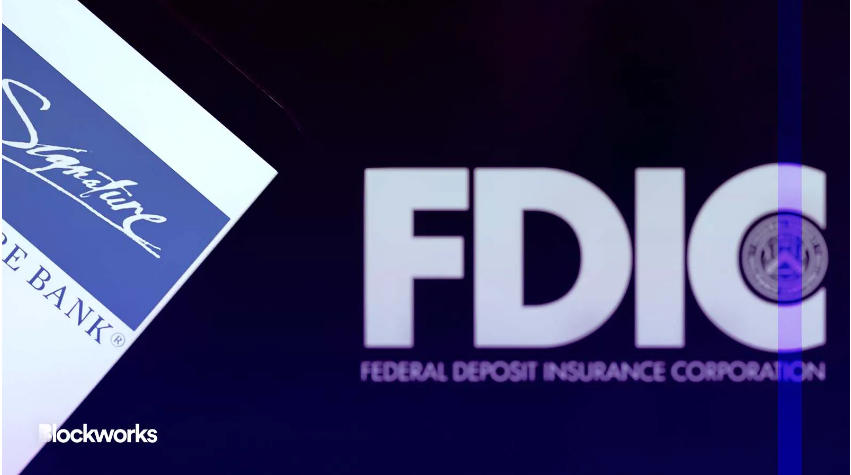The FDIC has announced in a statement Sunday that Signature Bank, now known as Signature Bridge Bank, will transfer its non-crypto deposits to Flagstar Bank, a subsidiary of New York Community Bancorp, effective Monday.
The move, according to a news release, comes as part of a purchase and assumption agreement between the two financial institutions, allowing for a seamless transition of accounts.
A notable point to highlight is that Flagstar Bank’s acquisition deal did not cover the roughly $4 billion worth of cryptocurrency deposits held by Signature Bank. Instead, the Federal Deposit Insurance Corporation has assured that customers who hold a digital banking account will have their deposits transferred directly to them.
Meanwhile, depositors of Signature Bridge Bank, with the exception of those linked to the digital banking business, will be seamlessly integrated as depositors of Flagstar, with FDIC insurance covering their accounts up to the insured limit.
Today, we entered into an agreement with a subsidiary of New York Community Bancorp, Inc., to purchase and assume deposits and assets out of Signature Bridge Bank. Read more ➡️ https://t.co/bSshY93lBh. pic.twitter.com/b9RBvYtGF7
— FDIC (@FDICgov) March 19, 2023
Signature Bank Holds On To Digital Assets
Under a “purchase and assumption agreement,” Flagstar Bank, based in Michigan, will be taking over $38.4 billion in non-cryptocurrency deposits and $12.9 billion in loans previously held by Signature Bank, as announced by the insurance commission on March 19.
However, $4 billion worth of digital assets were not included in the deal, which makes up about 4.5% of Signature Bank’s total $88.6 billion deposits as of Dec. 31.
Notably, crypto firms such as Celsius, Coinbase, and Paxos recently confirmed having exposure to Signature Bank.
Beginning March 20, all 40 branches of Signature Bank will operate under the name Flagstar Bank, and all deposits assumed by Flagstar Bank will be insured up to the $250,000 insurance limit.
The New Signature Bridge Bank
In an effort to safeguard the funds of depositors, the FDIC utilized the “systemic risk exception” to transfer all deposits and a majority of assets from Signature Bank to Signature Bridge Bank, N.A. The newly-formed full-service bank will be operated by the FDIC as it seeks potential buyers for the institution.
Systemic risk exception refers to the possibility of a risk event that can trigger a ripple effect throughout an entire system or network, causing widespread disruption or even collapse.
BTCUSD moving strong and breaches the $28K barrier on the daily chart at TradingView.com
Systemic risk can arise from a variety of sources, such as financial markets, cybersecurity, or natural disasters, and it can have far-reaching consequences that affect not only the immediate participants but also the broader economy and society.
In Signature Bank’s case, the FDIC determined it is essential to identify and manage systemic risks to ensure the stability and resilience of the system.
The FDIC said it anticipates gradually divesting all of its held assets and estimates that the final expense to the government will reach approximately $2.5 billion.
-Featured image from Poetra.RH/Shutterstock.com modified by Blockworks
